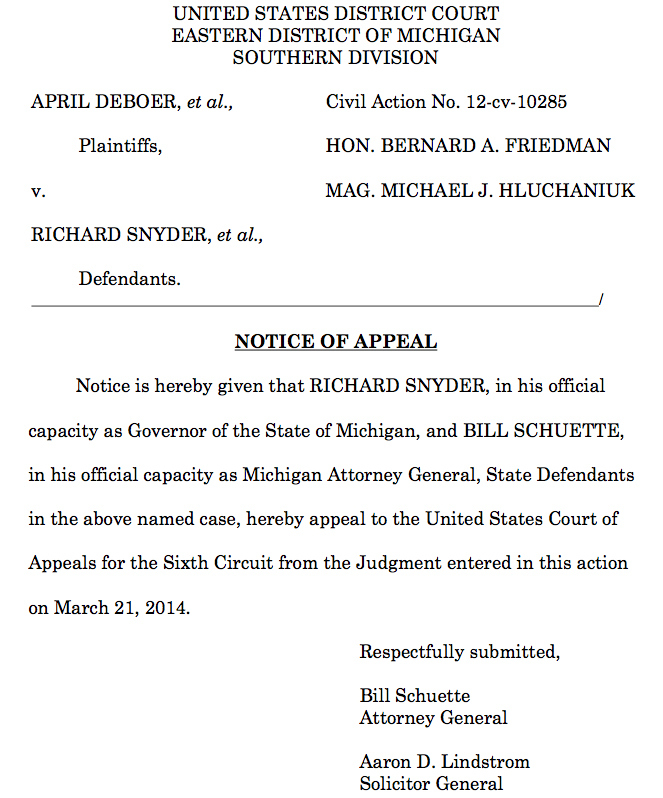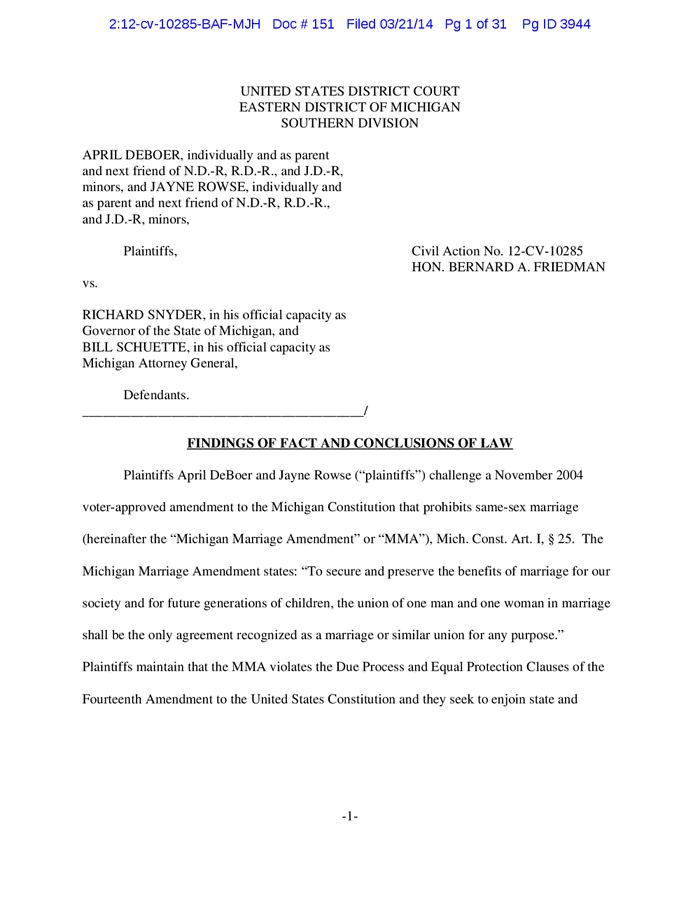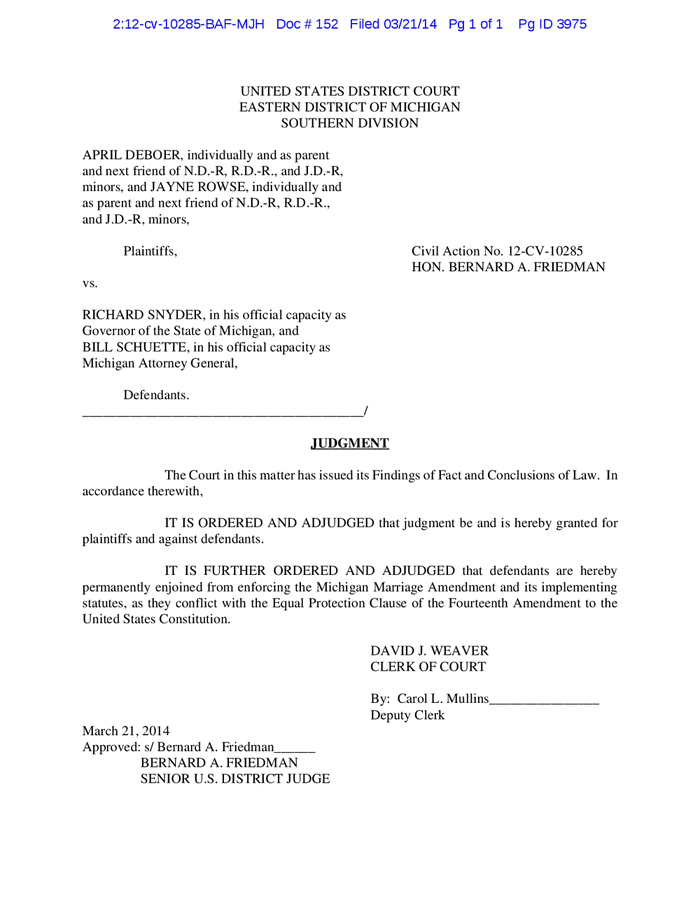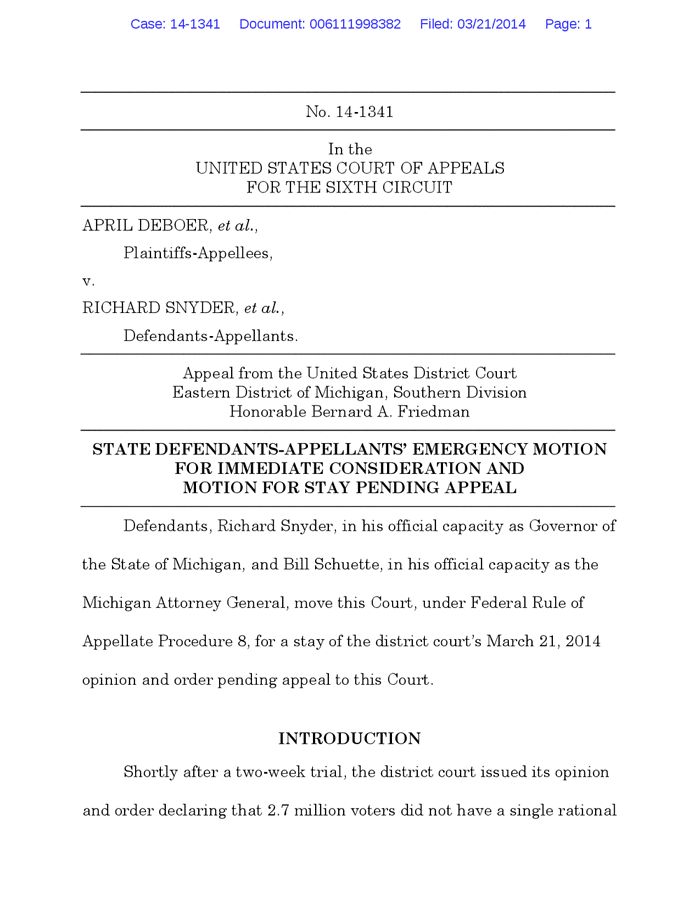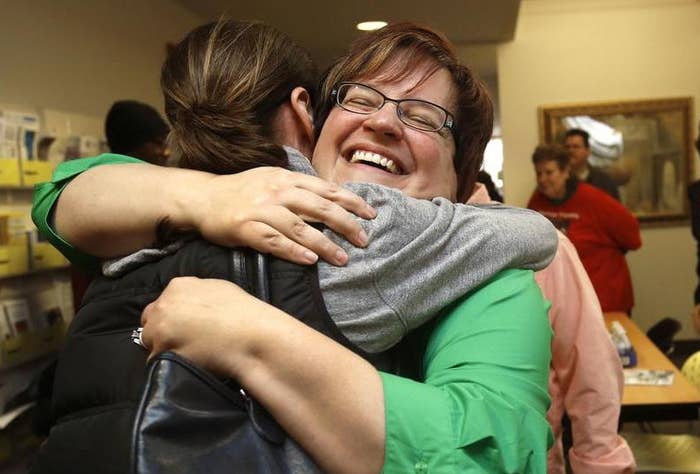
WASHINGTON — U.S. District Court Judge Bernard Friedman followed on the heels of several other federal judges in recent months, finding Friday that Michigan's ban on same-sex couples' marriage is unconstitutional.
The trial ended March 7, and Friedman had said a ruling in the case would not come before this week.
In concluding his 31-page ruling, Friedman said the Michigan marriage amendment violated the equal protection clause of the U.S. Constitution. Referring back to the 2004 vote passing the amendment, he wrote that "regardless of whoever finds favor in the eyes of the most recent majority, the guarantee of equal protection must prevail."
Plaintiff April DeBoer, who sued to be able to marry Jayne Rowse, said in a statement, "Our family is ecstatic! We have waited so long for the day when I could call Jayne my legal wife and when both of us could have peace of mind knowing our three children would finally have two legal parents. Knowing that day will soon be upon us means the world to us."
Michigan Attorney General Bill Schuette filed a notice Friday afternoon with the trial court that he was appealing the decision to the 6th Circuit Court of Appeals and has asked the 6th Circuit, in a separate filing, to put the trial court ruling on hold while the 6th Circuit considers the state's appeal.
The "emergency motion" was filed because neither Friedman's opinion nor the court's judgment makes mention of a stay keeping the judgment from going into effect immediately. That means same-sex couples can legally marry in Michigan currently — though the ruling came after county clerks' offices had closed for the day. When such a stay was denied by a federal trial judge who struck down Utah's marriage ban and by the 10th Circuit Court of Appeals, more than 1,000 same-sex couples couples married before the Supreme Court issued a stay.
"Given the U.S. Supreme Court's ruling in the Utah case, I fully expect our request for stay to be granted," Schuette said in a statement.
[Update at 10:25 p.m.: Washtenaw County (Ann Arbor), Mich., clerk Larry Kestenbaum announced his office, multiple sources report, will be open from 9 a.m. to 1 p.m. Saturday to process marriage licenses. Unless the 6th Circuit acts on the state's emergency request before 9 a.m. Saturday, it appears there will be legally married same-sex couples in Michigan before Monday.]
[Update at 2:25 a.m. March 22: Muskegon and Oakland counties will be providing some marriage license availability times on Saturday as well.]
[Update at 12:25 p.m.March 22:: Ingham County Clerk's Office became the fourth county to announce it would be issuing some marriage licenses Saturday, opening at 8 a.m. Saturday.]
In his opinion, Friedman went through the testimony of the expert witnesses at trial, including a multi-page section detailing the heavily criticized "New Family Structures Study" by Mark Regnerus. Friedman writes, "The Court finds Regnerus' testimony entirely unbelievable and not worthy of serious consideration."
Then, in laying out his legal conclusions, Friedman wrote that the reasons claimed by the state for excluding same-sex couples from Michigan's definition of marriage included: "(1) providing an optimal environment for child rearing; (2) proceeding with caution before altering the traditional definition of marriage; and (3) upholding tradition and morality. Additionally, the state defendants consistently asserted that defining marriage is within the exclusive purview of the state's police power."
As to the optimal environment argument, Friedman concluded, "Taking the state defendants' position to its logical conclusion, the empirical evidence at hand should require that only rich, educated, suburban-dwelling, married Asians may marry, to the exclusion of all other heterosexual couples. Obviously the state has not adopted this policy and with good reason. The absurdity of such a requirement is self-evident. Optimal academic outcomes for children cannot logically dictate which groups may marry."
As for the caution argument, Friedman wrote that "the state must have some rationale beyond merely asserting that there is no conclusive evidence to decide an issue one way or another."
As for tradition and morality, he wrote, "The same Constitution that protects the free exercise of one's faith in deciding whether to solemnize certain marriages rather than others, is the same Constitution that prevents the state from either mandating adherence to an established religion ... or 'enforcing private moral or religious beliefs without an accompanying secular purpose.' As a result, tradition and morality are not rational bases for the [Michigan marriage amendment]."
The state, Friedman noted, pressed that the Supreme Court's decision striking down the Defense of Marriage Act was based on the fact that marriage laws are a state issue. However, Friedman wrote, "While the justices recognized the state's expansive power in the realm of domestic relations, they also noted that this power has its [constitutional] limits."
Friedman concluded that "[n]one of these proffered reasons provides a rational basis for adopting the amendment," and that the amendment is unconstitutional because it violates the U.S. Constitution's guarantee of equal protection of the laws.
[Update: This article has been updated to include the state's response to the ruling.]
Friedman concluded:
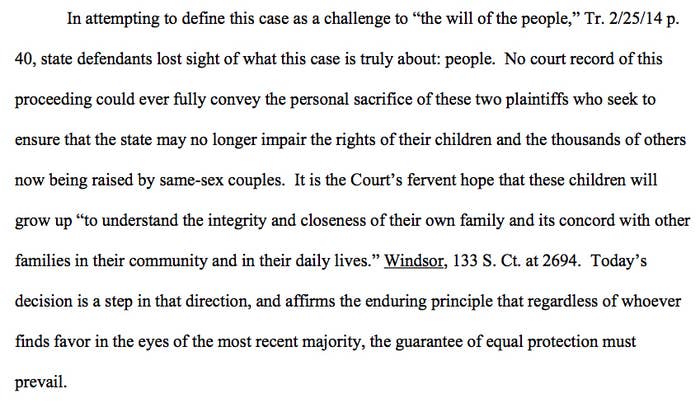
In its judgment, the court decided:

Update — March 22, 10:45 a.m. ET: The first same-sex couple married Saturday morning. The Ingham County Clerk tweeted that the newlyweds, Marsha Caspar, 51, and Glenna DeJong, 53, had been together for 26 years.
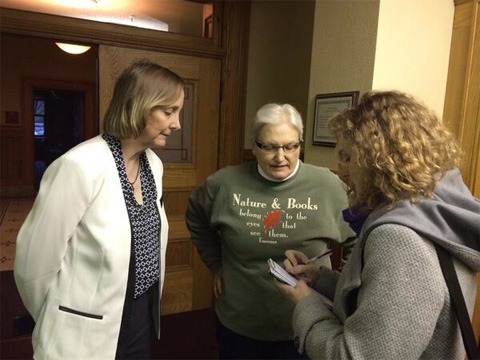
Read the state's notice of appeal:
